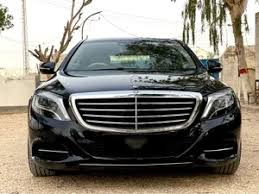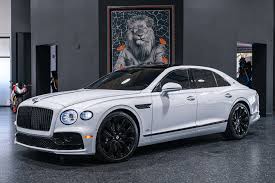From Craftsmanship to Code: The Evolution of Luxury Car Engineering

The Evolution of The Luxury Car has always symbolized the pinnacle of automotive excellence. For decades, this excellence was rooted in hand-built artistry—master craftsmen meticulously assembling vehicles with unparalleled attention to detail. Today, however, the automotive world is undergoing a profound transformation. The evolution from analog craftsmanship to digital precision has reshaped what it means to build a luxury car, with brands like Mercedes EQS and Lucid Air leading the charge in tech-driven engineering. Luxury Car
The Art of Hand-Built Craftsmanship
Classic luxury cars like the vintage Rolls-Royce Phantom or the Bentley Mulsanne evoke images of skilled artisans carefully assembling each component by hand. From hand-stitched leather interiors to hand-polished wood veneers, every inch of these vehicles was designed to convey exclusivity and timeless elegance.
The Evolution of The Luxury Car was more than just aesthetics—it was a promise of quality and individuality. No two cars were exactly alike. Each bore the mark of its makers, representing generations of accumulated skill, tradition, and pride.
The Rise of Technology: Code as Craft
Fast forward to today’s luxury vehicles, and the essence of craftsmanship has evolved from hands-on artistry to precision programming and advanced materials science.
The Mercedes EQS, Mercedes-Benz’s flagship electric sedan, is a prime example. This car integrates over 600 sensors and features a cutting-edge MBUX Hyperscreen, an expansive curved display driven by sophisticated AI software. Instead of handcrafted switches, the EQS uses voice commands and intelligent customization, delivering a personalized experience controlled by algorithms rather than manual levers.
Similarly, the Lucid Air pushes the envelope of electric vehicle innovation with its aerodynamic design and an electric powertrain capable of delivering over 1,000 horsepower. Lucid’s manufacturing process embraces precision robotics, digital simulation, and data analytics to optimize every element—from battery efficiency to ride comfort. The focus has shifted to software updates, autonomous driving capabilities, and integrating technology that adapts to the driver’s habits in real time.
Balancing Tradition with Innovation
Despite these leaps in technology, The Evolution of The Luxury Car are many modern luxury cars still honor their handcrafted heritage. High-quality materials like leather, sustainably sourced wood, and polished metals are combined with AI-assisted manufacturing to achieve both consistency and warmth. This hybrid approach ensures that technology enhances rather than replaces the tactile experience of luxury.
The evolution from hands to code also reflects broader shifts in consumer expectations—luxury buyers today desire not only opulence and performance but also connectivity, sustainability, and intelligent automation. Luxury cars have become smart living spaces on wheels, responding to driver needs through software just as much as physical craftsmanship.

Comparison Table: Classic Hand-Built vs. Modern Tech-Driven Luxury Cars
| Aspect | Classic Hand-Built Luxury Cars | Modern Tech-Driven Luxury Cars |
|---|---|---|
| Craftsmanship | Hand-stitched leather, wood veneers | AI-personalized interiors, digital interfaces |
| Manufacturing | Skilled artisans, manual assembly | Robotics, automation, digital simulation |
| Performance Focus | Smooth mechanical engineering | Electric powertrains, software optimization |
| Driver Interaction | Analog controls, tactile feedback | Voice commands, touchscreens, AI assistants |
| Uniqueness | Bespoke customization by hand | Software updates and modular features |
| Sustainability | Traditional materials, limited recycling | Electric propulsion, sustainable materials |
| Emotional Appeal | Tangible craftsmanship, heritage | Seamless tech integration, futuristic luxury |
Conclusion Of The Evolution of The Luxury Car
The journey from hand-built craftsmanship to code-driven engineering represents a fascinating chapter in luxury automotive history. While the soul of luxury remains rooted in exclusivity and attention to detail, the tools have changed—from the skilled hands of master artisans to the complex algorithms of AI and machine learning.
In the 21st century, luxury cars like the Mercedes EQS and Lucid Air don’t just showcase speed and comfort—they embody the future of personalized, intelligent, and sustainable driving. This evolution doesn’t replace the artistry of the past—it elevates it, marrying timeless tradition with bold innovation. VISIT HEAR




